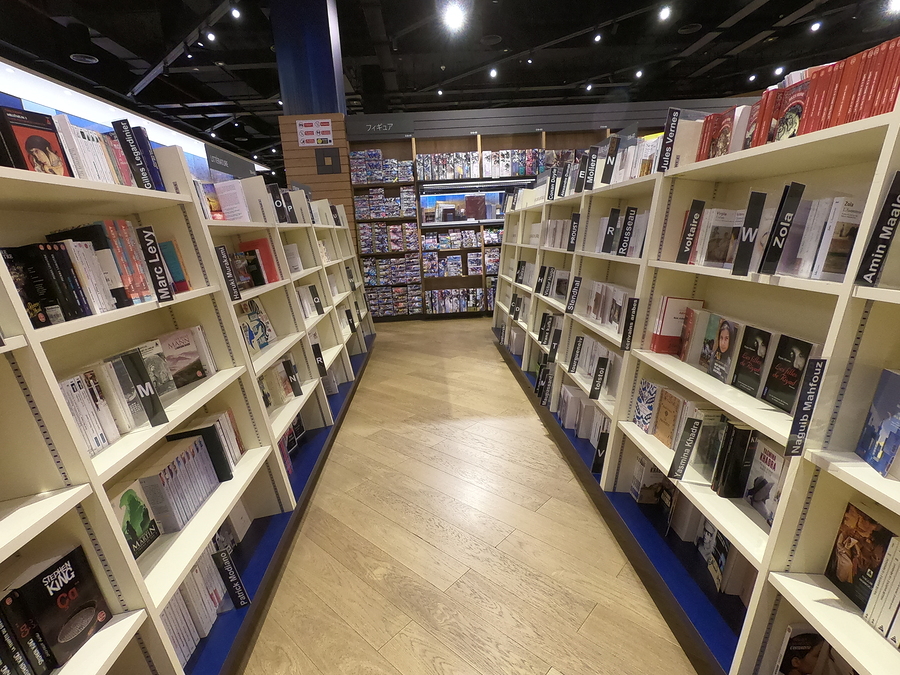Despite the desire of many to declare the death of the book, they continue to sell at a breathtaking pace. (New Yorker magazine “Twilight of the Books” and BBC future – “Are paper books really disappearing?”)
According to the “Association of American Publishers’ StatShot Annual Report for Calendar Year 2018,” book publishers based in the U.S. had net revenue of $25.82 billion and sold 2.71 billion units. That is billion with a “B.”
This means that in 2018 86 books were sold every second or 5,160 books per minute.
I’d say that’s something to celebrate, don’t you?
Of course, these numbers are estimates. (Note the article’s method for calculation at the end of the piece.) But no matter how you shake it, books are selling.
If you dig further in their report, a couple things jump out (quoting from the article):
- Within online retail channels, 45.1% of publishers’ sales were trade print formats, 24.5% were eBooks, 14.5% were instructional materials, 13.7% were downloaded audio, and 2.2% were physical audio or a different format.
- Religious presses revenue grew 14.7% in 2018 to $1.22 billion with 75.7% of the revenue coming from print formats.
Also note that none of these statistics account for indie-published books. These are traditional publishing estimates.
So, go ahead, celebrate a little. Treat yourself or someone you love to an ice cream cone. Smile a little at the knowledge that the business of bookselling is still viable.
One last thought to ponder. With Barnes & Noble being sold to a private equity firm, we will no longer hear public quarterly reports on their sales growth or decline. In other words, the bad-news cycle will quiet somewhat. I, for one, am grateful for the respite.



 Fun Fridays – June 28, 2019
Fun Fridays – June 28, 2019

That’s great news for writers. It’s no surprise to me. Of my seven grandchildren, ages twelve to twenty, five prefer a physical book to their e-readers.
I guess books are joining the growing list of things that were supposed to disappear but didnt: movie theaters, fossil fuels, pennies, the electoral college, and so on. Being a crusty old timer, I’m happy about it. Especially the part about books. Especially now.
As an author of a niche market page-a-day quilt calendar (since 2006) my publisher (Andrews McMeel, the world’s largest calendar publisher) has decided that their numbers have declined to the point that 2020 is the last year for that theme. (The calendar hits Amazon and book stores in August.) Sad, but true. But I’m not surprised. I have seen the steady decline of hard copy magazines, books and calendars in the craft genre take a direct hit. The interest is still there, but not in print form. It was a good run while I had it (14 years)! I still earn an income in that market, but not in standardized books and calendars.
Debby,
I’m sorry to hear your run has come to a close. We’ve had a couple long time favorite wall calendars be discontinued. Sometimes they are like books…they have a lifespan. Sometimes it is changes in people’s use of things like calendars (see Google Calendar on everyone’s smart phone).
It is of note that F+W Media declared bankruptcy in May. They had built an empire, through acquisition, of dozens of “hobby” publications. Magazine for quilters, deer hunting, numanists, old cars, woodworking,etc. including Writers Digest. They also had a sizeable book division for “hobby” books…like Writers Digest.
They had sales of 67 million dollars in 2018! But because they had leveraged so much debt to buy those publications, they could no longer service their $100 million debt. So they declared bankruptcy.
The book division was bought by Penguin Random House (which means the Writers Digest books will continue to be produced and supported). The magazine division was bought by a variety of entities and will keep them all circulating.
This is the reality of the business world. Pay too much to acquire a company…then if you can’t reduce costs enough while simultaneously growing sales…the debt eventually catches up.
Yes, Steve. I also contracted with F & W. I published in their magazines and taught at trade shows/conventions in their Sewing Expo division. At least the convention part allowed themselves to be bought by another healthy “mother ship” and I still have teaching jobs! I could see their demise coming for a long time. And their online presence was a horror story for the magazines they did gobble up. Good thing this world is not all there is, right?
Down through all my ages
books had so much to give;
in their creased and careworn pages
I discovered how to live.
The bindings now are weaker
and fall open to a place
where the reader…nay, the seeker
found in words a state of grace.
The dust-motes on their opening
with a warm and special scent,
dance on sunrays, now inspiring
of the wisdom that’s been lent.
These friends have marked so many days
and gave a meaning to life’s endless maze.
I never believed the negative reports. I love my paper books. The smell of them, the feel of the book in my hands, the joy of seeing a library full of them, and often signed by the author.
When I pick up a used book from an old bookstore, I love the dogeared pages that tell me someone else enjoyed this book, along with the occasional note placed in the margin.
So let the horror mongers rant and rave. I’ll just sit back in my comfy reading place and read a book…a real book…one I can hold in my hands and turn the pages instead of sliding my finger across yet another computer screen.
My husband and most of the members on my writers and readers group forum are in agreement with me. 🙂
To all,
I should have been more clear. This isn’t news regarding physical books vs. e-books.
You’ll notice the first bullet point has a breakdown for overall percentages of sales. In non-fiction it is still predominantly physical books. In fiction it is closer to a 50/50 ratio. Then for Indie fiction authors it is closer a 75/25 split with the 75 being ebooks.
What I’m celebrating here is that “books,” no matter what format they take, are still selling.
That is good news.
This is great news—and for once, not skewed by the indie numbers. This is a more accurate picture that provides a glimpse of the future and a glimmer of hope. People still want to read. People buy books. Writers should write more.
I think I’ll celebrate by bypassing the ice cream cone and going straight for the latest version of “The Christian Writers Market Guide.” ?
Thanks for the encouraging news, Steve. I will save the ice cream cone and trade it for a banana split (without chocolate, since I’m allergic) for getting my first book under contract. Hopefully, that will be sooner, rather than later.
Great news, and uplifting, as well.
For those of us waiting on the sideline, still the news is something to cheer over, and I for one, am glad.
Once (hope springs eternal, nice cliche, but true) from submission, acceptance, agent to a publisher it is give or take two years. I sigh as I think that, but you once wrote a blog regarding same.
And, of course, who knows where the market will stand in two years? For now, it’ss exciting.
And as always we pray over our learning, our polishing, and the professional editor (and the rewrites…). Without glorifying God, my writing is no longer about God, but me. And me-me-me-me-me is something we (I speak for me-me-me-me) struggle with daily, tackling that MS.
I am not a bit surprised that Religious presses revenue grew 14.7% in 2018 to $1.22 billion. A great number of people are sick of slime, filthy language, graphic sex and violence. These sales figures prove that even if people aren’t “religious” they still value good books without vile parts.
I for one am an optimist. I don’t think books will ever fade into the abyss.
Though they will have their peaks and valleys every time a new idea comes to the forefront. Locally, many of our schools jumped on the iPad bandwagon for all their text books, only to find out it wasn’t as cost effective as they anticipated (i.e. device repair and /or replacement, work time and study time for teachers and students when devices are down). A number are now going back to hard copies. Go figure. They still use their iPads, but not for all their text books.
Plus, when readers really enjoy a book on their device…they purchase for their home library or as a gift.
Trends go up then slip, but the optimist in me says book sales will continue to rise, be it hard copies or ebooks. But that’s just me…the eternal optimist.
Excellent post. Thank you so much.
Tha k you for the encouragement. I’ll celebrate with a donut. I was in the news business most of my professional life and know there is always something positive despite the negative reports on many subjects. Books forever!
Hi Steve, May I forward this delightful blog to our church’s group email? Thank you, Diane
Diane M. Welford
Librarian
First Baptist Church of Cocoa
750 Brevard Avenue
Cocoa, FL 32922
Church Ofc: 321-636-2868
Cell: 321-266-9835
dwelford2@outlook.com